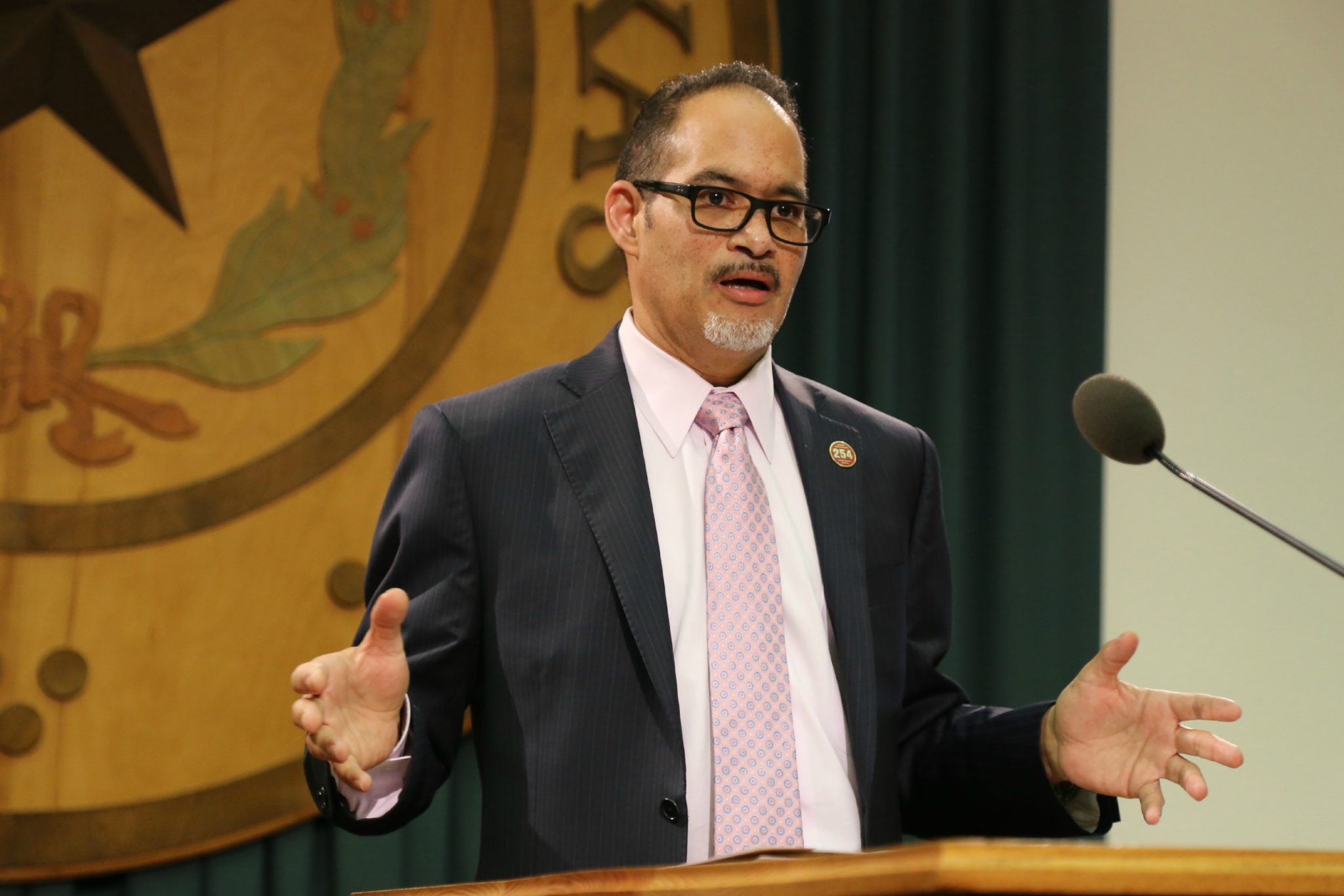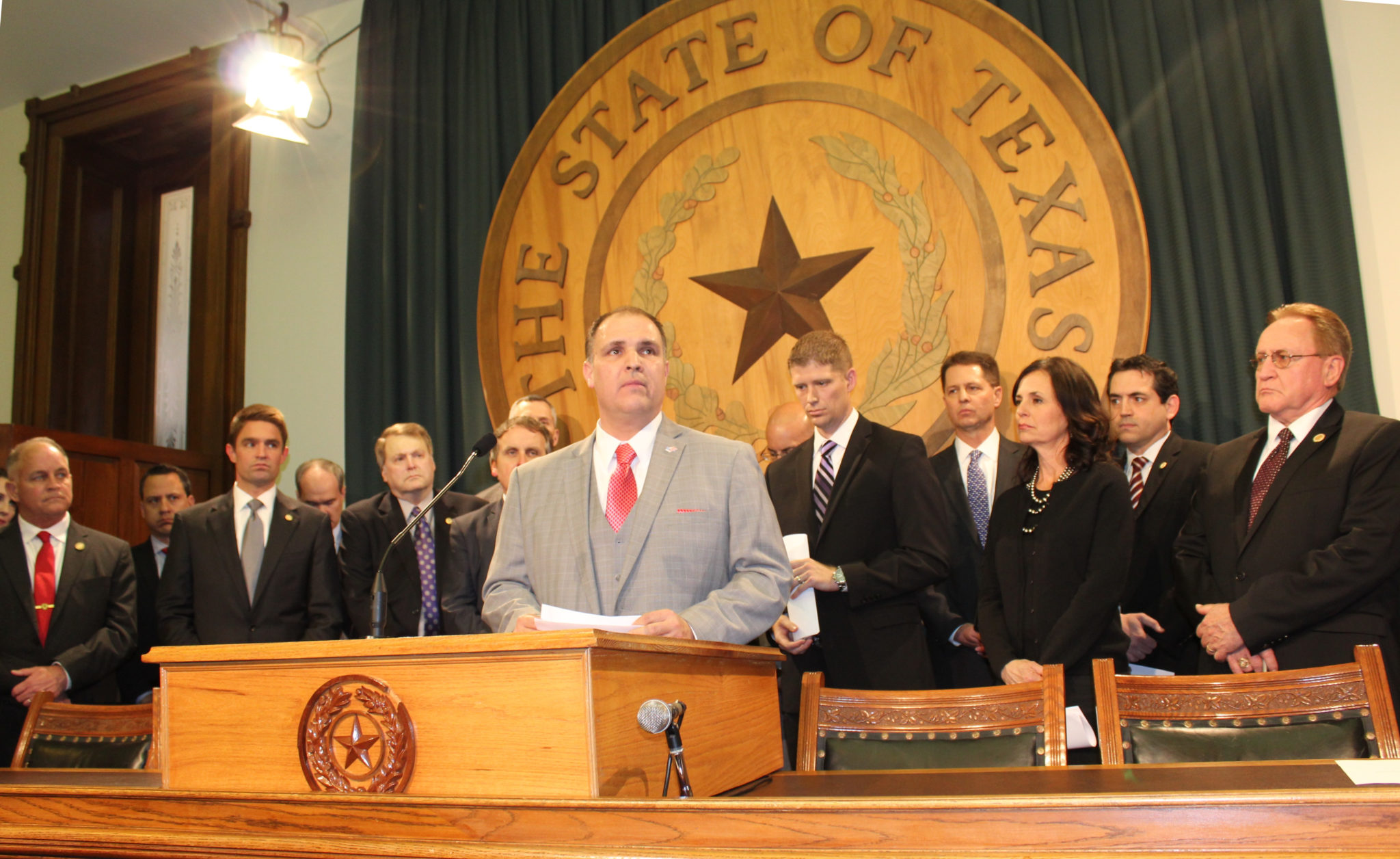
State Budget Experts Mistakenly Claim Sodomy is Still Illegal

Above: Rep. Garnet Coleman (D-Houston)
To explain why Texas should remove its unconstitutional sodomy ban from the books, Rep. Garnet Coleman (D-Houston) pointed to state budget advisers’ fiscal note for his proposal to repeal the law.
“It is currently a Class C misdemeanor to engage in same-sex sexual intercourse,” the fiscal note states. “A Class C misdemeanor is punishable by a fine of not more than $500. Lost revenue from reduced fines imposed and collected is not anticipated to have a significant fiscal impact.”
Texas’ “homosexual conduct” law was struck down as unconstitutional by the U.S. Supreme Court in 2003. But Coleman said the fiscal note for House Bill 2057, which would finally repeal the statute, illustrates the confusion that results from leaving it on the books.
“Our Legislative Budget Board wrote a fiscal note on a law that’s been overturned by the Supreme Court,” Coleman told the House Committee on Criminal Jurisprudence on Wednesday. “That shows you the problem. As long as it’s on the books, people will arrest someone for a law that’s not valid and will write a fiscal note based on a law that’s not valid.”
Rep. Joe Moody (D-El Paso), a member of the committee, said he was “baffled” by the fact that the sodomy ban is still on the books. And Rep. Terry Canales (D-Edinburg) called it “amazing.”
Douglas Alexander, a representative from the State Bar of Texas, testified in support of HB 2057 and noted that patrons of an El Paso restaurant were threatened with arrest under the sodomy ban in 2009. The men filed a federal lawsuit against the city that was settled three years later.
“It’s virtually guaranteed that as long as this law is on the books, other incidents of this type will occur in other municipalities, which will undoubtedly result in substantial expenses,” Alexander told the committee. “By failing to take the step of removing it, which now the Legislature has the option to do, it basically creates an unfunded liability.”
In addition to repealing the sodomy ban, Coleman’s bill would strike sections of the Health & Safety Code that reference it. Those sections require that “materials in the education programs intended for persons younger than 18 years of age must … state that homosexual conduct is not an acceptable lifestyle and is a criminal offense under Section 21.06,” as well as that “course materials and instruction relating to sexual education or sexually transmitted diseases should include … emphasis, provided in a factual manner and from a public health perspective, that homosexuality is not a lifestyle acceptable to the general public and that homosexual conduct is a criminal offense under Section 21.06.”
Rep. Matt Shaheen (R-Plano), a member of the committee, suggested that the Legislature should replace that section.
“Does it make sense to add language here that talks about the fact that the ideal environment for a child is a mom and dad?” Shaheen said.
Coleman responded that his bill would not remove another paragraph stating that sexual abstinence before marriage and fidelity in marriage are the most effective ways to prevent HIV infection, sexually transmitted diseases and unwanted pregnancies. Coleman told Shaheen he wrote that language with former Rep. Warren Chisum (R-Pampa).
“I wouldn’t want to see anybody remove that language from that statute,” Coleman said. “It’s been there since 1995 and has served us very well.”
Despite being introduced in every session since 2005, proposals to repeal the sodomy law have never made it to the floor of the House or Senate. This year may not be any different. HB 2057 was left pending on Wednesday with less than a week for House bills to be voted out of committee.



